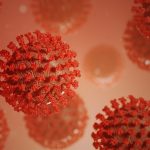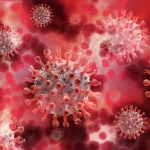April 14, 2020 – Head of the Croatian Institute for Public Health and a member of the National Civil Protection Headquarters, Krunoslav Capak, spoke about loosening measures in Croatia and when.
Like much rest of the world, Croatia has been living with special measures because of the coronavirus pandemic. It seems, however, that the epidemiological situation in Croatia is quite good, so the question arises when the rules will be lifted, or at least loosened.
We’ve already heard the news in Austria, which first announced that it was phasing out of the measures in place, as is Slovenia, Germany, but also Italy and Spain, the two countries most affected by the coronavirus in Europe.
Index.hr discussed loosening the measures and the epidemiological situation in Croatia with the head of the Croatian Institute for Public Health and a member of the National Civil Protection Headquarters, Krunoslav Capak.
Capak first commented on the fact that some countries, particularly those that were severely affected by the coronavirus, were already lifting measures.
“This situation cannot last indefinitely, especially in the economy, so that there is no economic collapse because then we have not done anything. The measures can be relaxed, but it must not be as before, special conditions such as distancing must be introduced,” Capak said.
He announced that he would consider loosening some measures in Croatia in the next period as well.
“One of those things is public transport. When public transport comes back, social distance measures will be prescribed. But before relaxing measures, such as normalizing public transportation, we think the epidemiological situation must be stabilized so that, God forbid, we don’t have a jump in the number of new cases as it happened in Serbia,” said Capak.
Capak said that there should be a consecutive number of days without new cases or a drop in new cases, or, more preferably, a drop without sudden leaps. The Head of the National Headquarters and the Minister of Interior, Davor Bozinovic, also gave a concrete time interval. A drop in the number of new cases should occur for five to seven days for them to begin loosening restrictions.
Krunoslav Capak revealed which of the measures represented the least risk and could be loosened in the first wave.
“It will definitely be economically good, good for the recovery of the economy and not a big risk. The business people will also help us a little by telling us which measure will most help the economy without creating chaos in terms of spreading the infection and increasing the number of new cases,” Capak explained, noting that the decision to loosen measures, when the time is right, is to be made by the Headquarters.
Capak confirmed that the public transport mentioned earlier could be one of the first measures to be eased.
“We will certainly consider public transportation and think very carefully about how we will do it. Our best people from the Public Health Institute use public transport to get to the lab, and they have no other option than public transportation. Some people just have no other options. We will certainly consider public transport soon, but under stringent conditions,” Capak revealed.
He said extending the opening hours of shops, like before Easter from 7 am to 8 pm, is not currently being considered.
“We will stay part-time from 8 am to 5 pm. When we agreed to that, we wanted to make it one shift, that people working in stores rotate and reduce the number of people going to work. I think that it is very important and that it is a successful measure,” Capak said.
Was there any feedback at the Headquarters as to whether the shops were organizing one shift?
“According to the information we have, most are. There may have been some shifts, but work is not two shifts, and that was important to us. I think it is very important to reduce the number of people, workers in stores, and customers,” he added.
When asked about complaints from those who work from 9 am to 5 pm, who are left with little time to go to the shops, he said that those in the Headquarters understand this best, but that it is still a good and efficient solution.
“Of course, I’m pleased. We considered the scenarios and comparisons with other countries and I always thought we wouldn’t have an Italian scenario. We did all the estimates on the number of beds and ventilators according to the Italian scenario, but I always thought it would be a lot milder here. If it were not for this situation in Split, we would have had a much calmer situation with less than 50 new cases a day,” Capak said.
Can we expect that the tourist season will begin by the end of July or August?
“It is very difficult to predict. We do not know what will happen in Scandinavia, although it looks promising there, and we do not know what will occur in central Europe. We have a particular advantage here because of the favorable epidemiological situation.
However, the tourist season depends a lot on the situation in the countries from which tourists come to Croatia. We will certainly not allow people from countries where the situation is not good to come. That is why it is tough to predict the tourist season at the moment. I think it would be good to think about attracting local guests,” Capak said of the tourist season.
Capak was asked if Croats who were planning holidays could then expect the movement ban within the country to be lifted.
“If it is a favorable situation, why not, we will see how we can ease it. For the time being, we are keeping that measure, but we will surely get there,” Krunoslav Capak concluded.
Follow TCN’s live updates on the coronavirus crisis in Croatia









